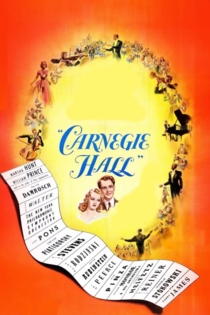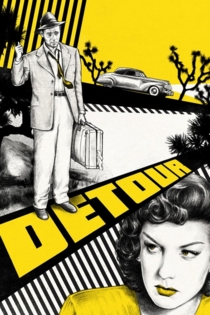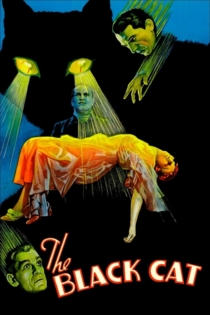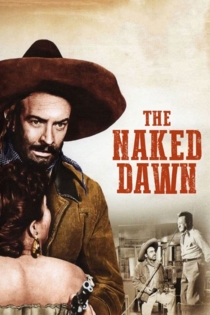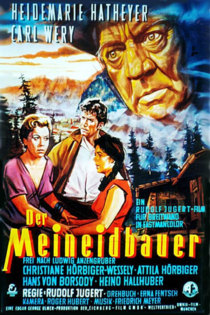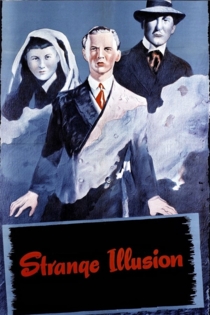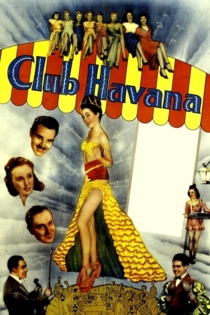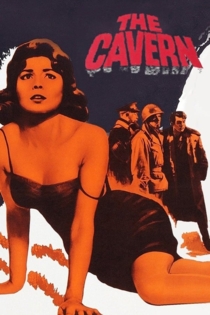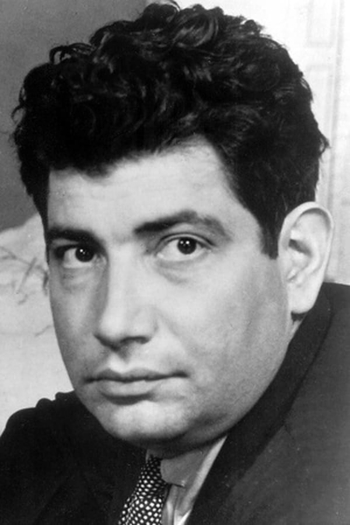
Edgar G. Ulmer
1904 - 1972Edgar Georg Ulmer (September 17, 1904 – September 30, 1972) was an Austrian-American film director. He is best remembered for the movies The Black Cat (1934) and Detour (1945). These stylish and eccentric works have achieved cult status, whereas Ulmer's other films remain relatively unknown.
The first feature he directed in North America, Damaged Lives (1933), was a low-budget exploitation film exposing the horrors of venereal disease. His next film, The Black Cat (1934), starring Béla Lugosi and Boris Karloff, was made for a major studio, Universal Pictures. Demonstrating the striking visual style that would be Ulmer's hallmark, the film was Universal's biggest hit of the season. Ulmer, however, had begun an affair with Shirley Beatrice Kassler, who had been married since 1933 to independent producer Max Alexander, nephew of Universal studio head Carl Laemmle. Kassler's divorce in 1936 and her marriage to Ulmer later the same year led to his being exiled from the major Hollywood studios. Ulmer was relegated to making B movies at Poverty Row production houses. His wife, now Shirley Ulmer, acted as script supervisor on nearly all of these films, and she wrote the screenplays for several. Their daughter, Arianne, appeared as an extra in several of his films.
Consigned to the fringes of the U.S. motion picture industry, Ulmer specialized first in "ethnic films," notably in Ukrainian—Natalka Poltavka (1937), Cossacks in Exile (1939)—and Yiddish—The Light Ahead (1939), Americaner Shadchen (1940). The best-known of these ethnic films is the Yiddish Green Fields (1937), co-directed with Jacob Ben-Ami. Ulmer eventually found a niche making melodramas on tiny budgets and with often unpromising scripts and actors for Producers Releasing Corporation (PRC), with Ulmer describing himself as "the Frank Capra of PRC". His PRC thriller Detour (1945) has won considerable acclaim as a prime example of low-budget film noir, and it was selected by the Library of Congress among the first group of 100 American films worthy of special preservation efforts. In 1947, Ulmer made Carnegie Hall with the help of conductor Fritz Reiner, godfather of the Ulmers' daughter, Arianné. The film features performances by many leading figures in classical music, including Reiner, Jascha Heifetz, Artur Rubinstein, Gregor Piatigorsky and Lily Pons. Ulmer did get a chance to direct two films with substantial budgets, The Strange Woman (1946) and Ruthless (1948). The former, featuring a strong performance by Hedy Lamarr, is regarded by critics as one of Ulmer's best. In 1951 he directed a low-budget science-fiction film with a noirish tone, The Man from Planet X. In 1964 he directed his last film, The Cavern, in Italy. Description above from the Wikipedia article Edgar G. Ulmer, licensed under CC-BY-SA, full list of contributors on Wikipedia.
Menschen am Sonntag
Robert Siodmak, Edgar G. Ulmer
Erwin Splettstößer, Brigitte Borchert
A semi-documentary experimental 1930 German silent film created by amateurs with a small budget. With authentic scenes of the metropolis city of Berlin, it's the first film from the later famous screenwriters/directors Billy Wilder and Fred Zinnemann.
People on Sunday
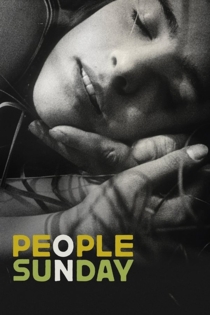
Ruthless
Edgar G. Ulmer
Zachary Scott, Louis Hayward
Horace Vendig always gets what he wants. Even as a poor youth, he charmed his way into high society by getting the father of his friend, Martha, to foot the bill for his Harvard education. When Vic, another childhood pal, is invited to Horace's mansion for a party, he brings along Mallory Flagg, who happens to bear a striking resemblance to Martha. As Vic and Horace reunite, old resentments rise to the surface.
Ruthless
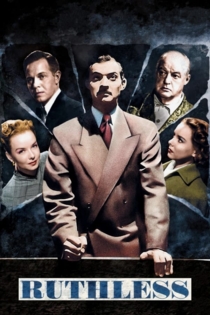
Zaporozhets za Dunayem
Edgar G. Ulmer
Maria Sokil, L. Biberowich
Director Edgar G. Ulmer executed the low-budget COSSACKS IN EXILE (1939), for Ukrainian-Canadian producer Vasile Avramenko, with a stylish flair; this obscure little operetta contains many pleasant moments. In the Ukraine, 1775, the Zaporogian Cossacks learn that Moscow is sending soldiers to destroy their fort. The Ukrainian villagers appeal to Czarina Catherine, but she insists that they join the Russian army or risk annihilation. Instead, the Cossacks burn their fort and flee on the Danube River to Turkey, where they live in peace, but still yearn for their homeland.
Cossacks in Exile
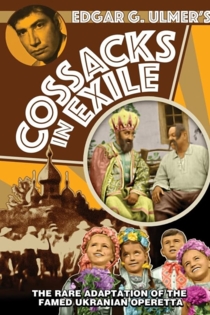
Yankl Der Schmid
Edgar G. Ulmer
Moise Oysher, Miriam Riselle
Moishe Oysher, the renowned cantor and star of Yiddish radio, stars in Edgar G. Ulmer’s musical version of David Pinski’s play Yankl der Shmid. Singing, dancing, and flashing his eyes, Oysher gives his most robust performance as a passionate shtetl blacksmith who must struggle against temptation to become a mensch. Recently rediscovered footage makes this the most complete extant version of Ulmer’s lively folk operetta, replete with an example of Yiddish swing.
The Singing Blacksmith
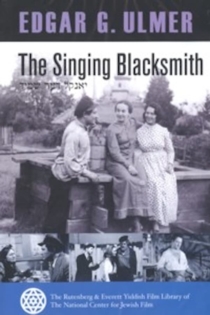
Fishke der Krumer
Edgar G. Ulmer
Helen Beverly, David Opatoshu
The Light Ahead is possibly the greatest of Edgar G. Ulmer’s shtetl films. Here, the director counterpoints his pastoral Green Fields to criticize the poverty and superstition that oppress a pair of star-crossed lovers. Made on the eve of World War II, The Light Ahead is at once romantic, expressionist, and painfully conscious of the danger about to engulf European Jews. Impoverished and disabled lovers Fishke and Hodel dream of life in the big city of Odessa, free from the poverty and stifling old-world prejudices of the shtetl. The benevolent and enlightened bookseller Mendele helps them, turning small-town superstitions to their advantage. Based on Mendele Mokher Seforim's story of love frustrated by small-town ignorance, this luminous allegory of escape marries Edgar Ulmer's masterful direction with superb acting by members of New York's Artef and Yiddish Art Theaters.
The Light Ahead
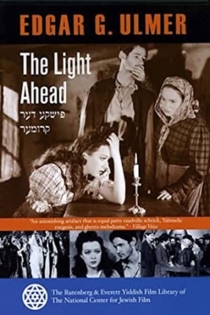
The Strange Woman
Edgar G. Ulmer
Hedy Lamarr, George Sanders
Isaiah, a 19th-century businessman, has his eye on the beautiful and very young Jenny. Finally of age, she accepts his marriage proposal, but their love affair quickly turns sour. Ephraim, Isaiah's college-age son, comes for a visit, immediately striking up a chemistry with Jenny. She promises marriage -- if he murders his father first. But Jenny also swoons for John, the fiancé of her best friend, Meg.
The Strange Woman
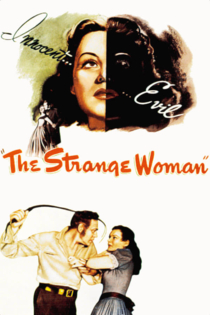
Her Sister's Secret
Edgar G. Ulmer
Nancy Coleman, Margaret Lindsay
A WWII tale of romance that begins during New Orlean's "Mardi Gras" celebration when a soldier and a girl meet and fall in love. He asks her to marry him but she decides to wait until his next leave. He is sent overseas and she does not receive his letter and feels abandoned, but she does find out she is pregnant. She gives the child to her married sister and does not see her child again for three years. She returns to her sister's home to reclaim the child, and the soldier, who has been searching for her, also turns up. The sister is not interested in giving up the child. Written by Les Adams
Her Sister's Secret
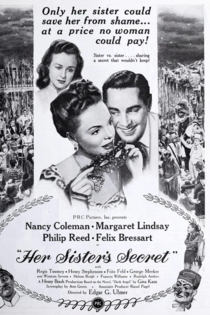
Grine Felder
Edgar G. Ulmer
Michael Gorrin, Helen Beverly
Ulmer's soulful, open-air adaptation of Peretz Hirshbein's classic play heralded the Golden Age of Yiddish cinema. When an ascetic young scholar ventures into the countryside, searching for the city of "true Jews," he learns some unexpected lessons from the Jewish peasants who take him in as a tutor for their children.
Green Fields

Carnegie Hall
Edgar G. Ulmer
Marsha Hunt, William Prince
A young Irishwoman comes to the United States to live and work with her mother as a cleaning lady at Carnegie Hall. She becomes attached to the place as the people she meets there gradually shape her life. The film also includes a variety of performances from some of the foremost musical artists of the times: conductors Bruno Walter & Leopold Stokowski, solists Arthur Rubinstein & Jascha Haifetz, singers Lily Pons & Jan Peerce and bandleader Vaughn Monroe among many others.
Carnegie Hall
